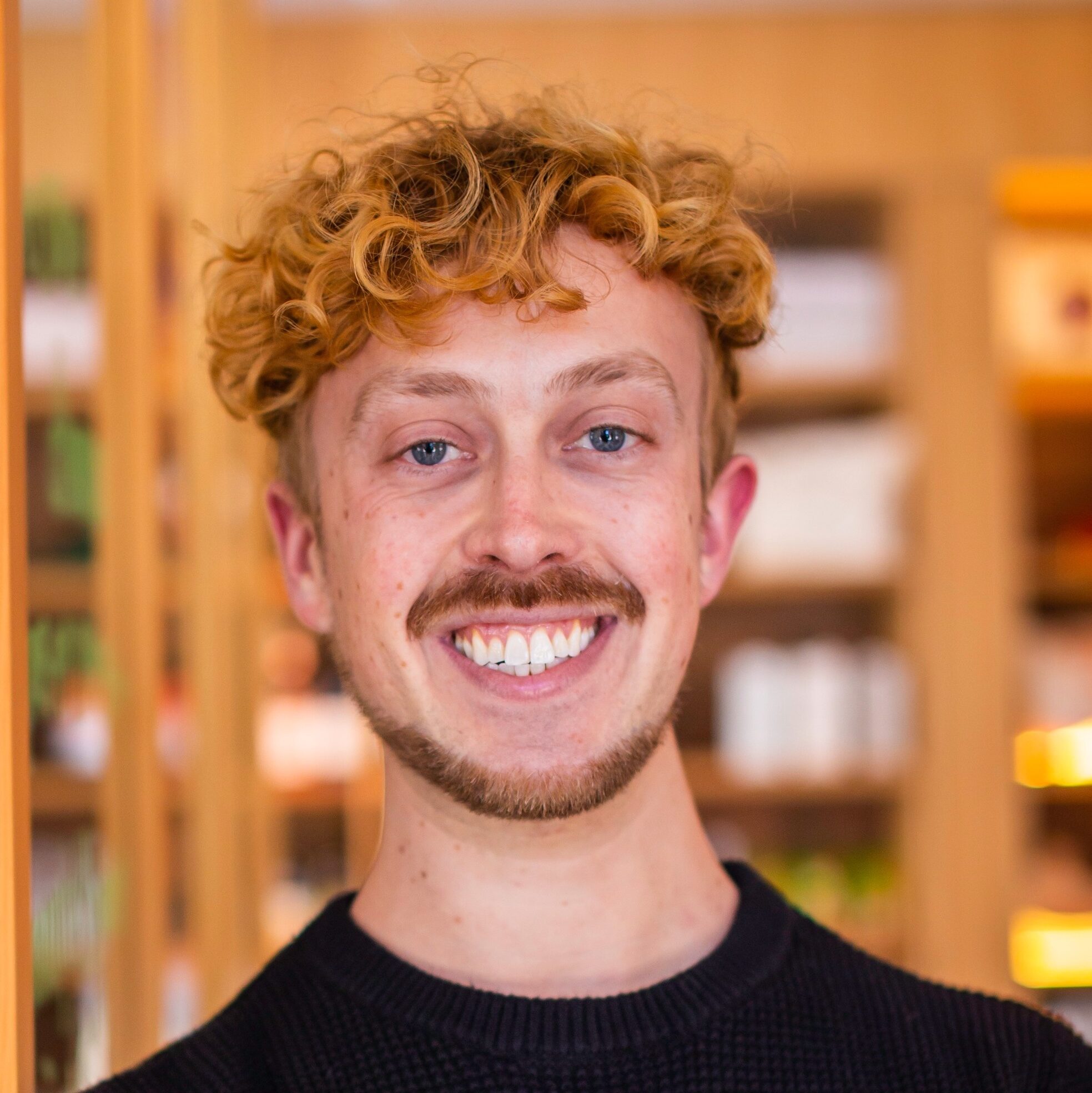Dispatch by Elaine Coburn

This dispatch is based on Dr. Dietzel's talk, "Ageing Online: Exploring Older 2SLGBTQ+ Adults’ Experiences with Digital Platforms." Watch the fulll video here.
“Research is an intervention and should be used to support people.”
This is how Dr. Christopher Dietzel, the 2022–2023 Visiting Scholar in Sexual Studies at York University, explained the motivation behind his research, Ageing Online: Exploring Older 2SLGBTQ+ Adults’ Experiences with Digital Platforms.
Dietzel seeks to understand the relationships between 2SLGBTQ+ identities and digital technology to shed new light on the benefits and challenges of technologies for the community, especially those who are 50 and older.
Existing studies show that older 2SLGBTQ+ adults experience social isolation. They are more likely to be estranged from their families, to be single, and to live alone. Even prior to the pandemic, research suggests that over half of 2SLGBTQ+ older adults feel socially isolated.
“During the pandemic, social isolation increased due to measures to limit the transmission of the COVID-19 virus,” Dr. Dietzel observed. “This isolation has negative health consequences, including weight gain, anxiety, depression, and in severe cases, suicidal ideation.”
Technologies have been important to overcoming that isolation by enabling relationships, despite social distancing measures.
Older adults are often framed as incapable of using technology and much of the research focusses on financial and emotional intimacy scams when people take up technologies later in life. Yet about one in four older adults in Canada use social media and dating sites to connect socially and intimately with people in their community and to learn about themselves. Exploring those interactions is important, especially in the 2SLGBTQ+ community, where older adults’ experiences are less often centered in research.
Those who are 50 and older today were young adults in the 1980s, Dr. Dietzel reminded his audience, when queer people faced severe social isolation and threats in Canada. Millions of queer people have lost their lives to the AIDS epidemic, and in those early days, they sought support from one another, despite homophobia, stigmatization of AIDS as a “gay disease,” and failures of the state to take steps to contain the AIDS epidemic. Experiences of social isolation and resilience during times of crisis are thus not new to older 2SLGBTQ+ adults.
“How did they cope during the COVID-19 pandemic?” Dr. Dietzel asks. “How did digital technologies help or hinder efforts to overcome social isolation, given that social isolation was exacerbated by measures intended to limit the spread of COVID-19?”
According to his scoping review on the topic, older 2SLGBTQ+ adults reported feeling prepared for the social challenges of the pandemic because of their lived experiences with transphobia and homophobia. The strained relationships they had with family, peers, and others, for instance, had helped them develop important skills, become more resilient, and be better prepared to navigate social isolation fueled by COVID-19.
They shared a commitment to supporting each other. Given discrimination, harassment, and harms experienced by older 2SLGBTQ+ adults, including before and during the pandemic, many felt that they had a particular duty and responsibility to support each other.
“Older 2SLGBTQ+ adults used telephones, conferencing platforms like Zoom, social media sites like Facebook, and messaging platforms, like WhatsApp to stay connected and support each other, despite social distancing measures in place during the pandemic," Dr. Dietzel explained.

In so doing, they built on existing networks and extended them online. Many improved and enhanced their technological skills, motivated by the desire to maintain relationships virtually when it was no longer possible to do so in person.
“But there were challenges and problems too,” Dr. Dietzel observed. “Many older 2SLGBTQ+ community members did not have the equipment and infrastructure needed to access technology. Others were frustrated that they needed to rely on technology to connect with friends, families, peers, and partners.” For others, online interactions were less strong and satisfying than in-person encounters.
Future research will take up the ways that older 2SLGBTQ+ adults interact with digital technologies, with the aim of developing policies that address the digital divide and support intergenerational solidarities within a diverse 2SLGBTQ+ community.
“This means doing research with and for the older 2SLGBTQ+ community,” Dr. Dietzel emphasized, “so that, together, we can develop digital technology strategies that inform policies that support the wellbeing of older 2SLGBTQ+ adults and their diverse needs.”
Watch the full talk here.
